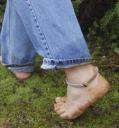One of my frequent themes concerns the corrupting influence of big money.
We advertise many of our western societies as ‘Governments of and for their people‘. And we like slogans like, ‘One man – one vote‘. But, in truth, in our supposedly egalitarian societies, some folks are more ‘equal’ than others in getting to decide how our governments govern us. And this representational imbalance is very often the result of big money.
In the U.S., those who watch Washington, D.C., know well just how pervasive the lobbying industry is there. Wealthy individuals and powerful corporations spend lavishly to insure that laws are passed or amended to best suit their preferences and needs. This has been going on for so long and has gotten so endemic, that Americans take it all for granted.
Some Americans, and I am one, see representative democracy in the U.S. as partly, and maybe even largely, a sham. Many of the real decisions are predestined by the lobbyists and power brokers behind the scenes. Corporate America often has more say about America’s directions than the American electorate.
But, it hasn’t always been that way in the U.S. and it certainly isn’t as pervasive in many other western nations. But the general tendency for democracies to move in this direction is always there where ever the predominate ethic is Capitalism. Because where ever people gain and possess great wealth, they will inevitably try to use their wealth to alter the political landscape to make their lives easier and their fortunes bigger.
Here in New Zealand, with just over four million people, a battle is currently being fought over this issue. Led by the New Zealand Green Party, people are trying to close campaign finance loop-holes with the Electoral Finance Bill and make sure that New Zealand election results fairly represent the will of all the people and are not just reflections of the will of the wealthy few.
Predictably, those who benefit from the continued existence of these loop-holes are attacking the Electoral Finance Bill and attempting to convince folks that the bill is a attack on free speech. And those who oppose the bill are well financed and can afford to run large campaigns devoted to defeating it while those who support it struggle to find the funds to defend electoral egalitarianism.

The above is an ad placed in New Zealand national newspapers by the Green Party. Unfortunately, as the ad discloses, they were only able to run the ad once because they don’t have backers with deep pockets who see the Green’s policies as being in their best interests.
When those with large amounts of money use it to defend functional corruption, the only thing that can defeat them is an alert and concerned electorate.
I have hopes for this process in New Zealand. It’s a small country and people feel a closer connection to their decision makers and they have a greater sense, I believe, that New Zealand is their country and they can influence her behaviors. The idea that the government exists to serve the needs of its people is strong here. Perhaps this lingers from the years before the 80’s when New Zealand had a much more Socialist bent.
Today, I received an E-mail from the New Zealand Green Party about the new Electoral Finance Bill and where they stand on it and why. Things are so far gone in the U.S. that, frankly, I cannot imagine ever receiving something like this there.
I’ve copied the E-mail, below. I hope you’ll read through it and reflect on how much sense it makes – and how large are the forces of greed and corruption arrayed against this sort of thing – world-wide.
= = = = = = = = = = = = = = = = =
Protecting free speech and fairer elections
From Green MP Metiria Turei and Green Co-leader Russel Norman
Please forward this email to as many people as you can to get the truth out there.
www.greens.org.nz/campaigns/electoralreform/
Many of you will have seen media reports and even paid advertising about the Electoral Finance Bill. Given the controversy around this Bill, we thought it was important that we wrote to you directly to explain the Green position.
The Electoral Finance Bill deals with one of the most important issues in our democracy – controls on the financing of election campaigns to protect the integrity of the ballot from the inequality of the wallet.
The Greens have had many concerns about this Bill but we have chosen to work constructively with all parties. Our aim has been to improve the laws around campaign finance so that we have a fairer election system, ensure a more level playing field, and limit the corrupting influence of large secret donations on political parties.
The opponents of campaign finance reform
However, much of the publicity that has surrounded this Bill has been one-sided and, in fact, some has even been funded by wealthy donors who want the law to stay the same. They are trying to frighten New Zealanders by saying the Bill impacts on freedom of speech – this is not true.
Some media organisations have also been running an active and misleading campaign against the Bill. Journalists have contacted us to tell us that they oppose the misleading editorial line of their papers, but it is very difficult for them to get their views across.
So what does the Bill do (and what doesn’t it do)?
· The Bill does not restrict freedom of speech – it just caps election campaign spending.
· Any person or group can purchase as much issue advertising as they want at any time.
· The Bill only places limits on how much election advertising political parties and others can purchase in an election year. That limit is $2.4m for political parties and $120,000 for any other group or individual.
· Any group or individual who purchases more than $12,000 in election ads must register with the Electoral Commission so there is transparency about who is involved in the election campaign.
The spending caps exist to stop parties spending millions on campaigning and then needing to raise those millions in donations. Once parties rely on millions in donations they become heavily influenced by those who provide the money. The caps on political parties only work if there are caps on spending by other groups, otherwise the money goes into parallel campaigns.
The Royal Commission supported spending caps
The 1986 Royal Commission on the Electoral System wrote: “It is illogical to limit spending by parties if other interests are not also controlled. Supporters or opponents of a party or candidate should not be able to promote their views without restriction merely by forming campaign organisations ‘unaffiliated’ to any party…Nor should powerful or wealthy interest groups be able to spend without restriction during an election campaign while [the parties] are restricted.”
Closing the loopholes
Those who are most strongly opposed to the Bill took advantage of two major loopholes in our electoral financing regime in 2005.
The first loophole enabled an organisation to work with a political party to run an almost identical campaign – known as parallel campaigning. This meant that the spending of the organisation was not capped even though it was a planned party election campaign.
The second loophole allowed for millions of dollars to be given to political parties without the public knowing who gave that money. Both the USA and Australian electoral systems have suffered from the corruption that arises from the secret funding of political parties.
The Greens are proud to assist in the closing of those two loopholes. This work will protect our electoral system from the threats of corruption that other similar democracies face.
It’s far from perfect
However, we still have some outstanding issues with the Bill and with the process for these electoral law reforms. We are still pursing the option of a citizens’ assembly which would allow for a number of randomly selected citizens to consider the issues of electoral finance and to find the best system for New Zealand. This system has been used successfully in Canada and we believe that the people of New Zealand should be able to make these decisions.
We have not achieved the ban on anonymous donations over $1000 that is our policy. However we have severely restricted the anonymous donations that can be received by both a third party and a political party. This is a major change in the law and goes someway towards a system that is open about who is funding political campaigns.
Changes the Greens achieved in the Bill
In summary, the Greens have made the following amendments:
Amendments to protect freedom of speech
1. Alter the definition of election advertising to protect issues advertising. This means that individuals and groups will be free to campaign on the issues that are important to them, regardless of whether one or more parties is also campaigning on the same issue. The Greens come from a campaigning background and we were determined to protect the right of groups to continue to campaign. For example, Greenpeace can continue to campaign against whaling, even though it is a campaign the Green Party has a profile on.
2. Remove the requirement for a statutory declaration for spending less than the threshold. This means that people or groups don’t have to sign a statutory declaration every time they spend money under the threshold for listing as a third party. It was an unnecessary burden that performed no useful function.
3. Lift the cap on election spending by non-party groups from $60,000 to $120,000. Many groups and individuals engage in election advertising during campaign year. This advertising encourages voters to support parties that adopt certain policy positions. The Bill as introduced limited this spending to $60,000. The Greens have supported amendments that increase this limit to $120,000, 5% of the $2.4m party limit and twice that originally proposed.
4. Lift the spending limit at which a group must list as a third party from $5000 to $12,000. This was important because many groups and people engage in election advertising through pamphlets, newsletters or community newspaper adverts. These ordinary election activities should not require a person or group to have to list as a third party where the spending is under $12,000.
5. Enable under 18 year olds and permanent residents to be able to list as a third party. We fought for the inclusion of this because it is a breach of the rights of a citizen to be prevented from engaging in election advertising activities simply because they are not old enough to vote. This change also means that groups will not be excluded from listing as a third party simply because one member is under 18 years old.
6. Protect donations to groups that are not for election purposes. This means that groups that register as third party participants in the election will not have to declare any donations that are not specifically for election purposes.
Groups are entitled to raise and collect money for their regular activities without interference. Only donations given specifically for electioneering will need to be disclosed.
Amendment to restrict anonymous donations
7. Severely restrict anonymous donations to political and third parties. The Greens insisted on an anonymous donations regime that will restrict Labour and National’s ability to raise money through anonymous donations. Our policy is that all donations over $1000 should be identified as to the true source – they shouldn’t be listed as anonymous nor should they be hidden behind secret trusts.
In negotiations over this bill we have made progress towards achieving our policy by introducing a system that will limit political parties to a total anonymous donations income, for donations over $1000, of 10% of their spending cap over the three year electoral cycle – this would cut Labour’s anonymous donations income by at least half and National’s secret trust income by about 90%. Labour and National don’t like it but we make no apologies for this.
In addition the money must be passed via the Electoral Commission to distance the parties from the process and donors must identify themselves to the Electoral Commission and give an assurance that they are not telling the parties about the donation on the sly. There is a limit of $36,000 on how much any one donor can give to a political party via this mechanism.
If you have any further questions, please don’t hesitate to ask us by emailing Metiria.Turei@parliament.govt.nz or Russel.Norman@greens.org.nz.
We hope that you have an enjoyable break over the holidays with time to spend with your family and friends. And we also hope you get to spend some time enjoying the natural environment that makes New Zealand such an incredible place to live.
Best wishes
Metiria and Russel
Metiria is the Green MP responsible for the Bill in the House; Russel is Spokesperson on Electoral Matters.



